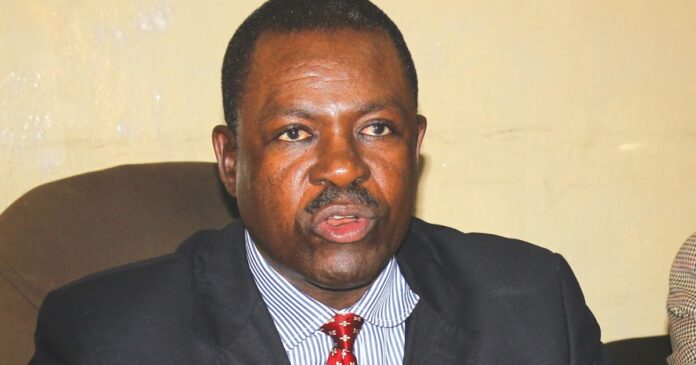ZAMBIA’S FORMER JUSTICE MINISTER KABIMBA ANSWERS QUESTIONS ON BAROTSELAND ON RADIO TALK SHOW
Author: SIBETA MUNDIA, Barotseland Post | 19th January, 2024.
Today, on Phoenix Zambia Radio talk show, ‘Let the People Talk’, Mr. Kabimba tackled a question on Barotseland as he announced that he covers the matter in his recently released book.
On the show, Mr Kabimba was right about only one thing concerning Barotseland; he stated that Barotseland was a separate British Protectorate from the Northern Rhodesia Protectorate. This is factual.
For those who might not know, a protectorate is a state or country under the protection of another stronger state. Therefore, Barotseland was a separate country or state from Northern Rhodesia but merely shared the protection of Britain, a stronger state, and the two protectorates happened to have shared geographical proximity.
However, Kabimba was grossly wrong when he explained that an international treaty, The Barotseland Agreement 1964, which was signed by the three separate states of Northern Rhodesia, Britain, and Barotseland, to allow the two separate protectorates to proceed to independence as one sovereign state, could be annulled by merely changing domestic laws through parliament. A Zambian parliament that did not even have fair representation by numbers of Barotse MPs to other MPs from the rest of Zambia.
This is a legal fallacy, and Mr Kabimba as a lawyer knows that he is wrong here and he is the one misinforming the public. Kabimba’s ideas above differ sharply from seasoned Zambian constitutional lawyers who have written or spoken publicly on the same subject such as Dr. Ludwig Sondashi, Dr. Rodger Chongwe, Dr. Elias Mushya, and Mr John Sangwa.
A country can not decide to simply pass a national or domestic law to absolve itself from performing an international treaty! The Rodger Chongwe Commission of Inquiry, as preempted by Dr. Rodger Chongwe himself on this matter, rightly advised the Zambian State to correct this anomaly by immediately restoring the Barotseland Agreement 1964. However, the reprobate Zambian State has refused to amend its wrongs against Barotseland with impunity because of its military hardware.
Kabimba knows that what Kaunda did in 1969 or is purported to have done is a sham, that is why he further went on to say that he had personally recommended to late Zambian President Michael Sata that a referendum in Barotseland borders under claim be carried out to settle the matter – which by the way, would be the best resolution for the Barotseland issue.
Using the Zambian parliament to purportedly outlaw Barotseland is like saying the British parliament passed a law in parliament that purports Scotland, Wales, England, and Northern Ireland will no longer exist as countries.
Zambia’s unitary State was styled after the UK which is also a unitary state comprised of more than one state. A unitary state is a sovereign state governed as a single entity in which the central government is the supreme authority but may be comprised of two or more countries or smaller units that could be locally governed separately. Some notable examples of unitary governments include the United Kingdom, Japan, and Saudi Arabia.
Although one sovereign country, in reality, the United Kingdom, for example, is comprised of four smaller separate nations: England, Scotland, Wales, and Northern Ireland, each with its own culture and autonomous existence.
In stating that a referendum is the solution, Kabimba is right, considering that the Zambian government does not want to do the right thing. Consequently, in Barotseland governance, a referendum is equivalent to, and is called a people’s PIZO (people’s call) or in English, a Barotse National Council (BNC).
In 1964, The Litunga of Barotseland did not just sign the Barotseland Agreement out of nowhere. Barotseland had to convene this people’s PIZO or the Barotse National Council. It was through the decision of a BNC in 1964 that Barotseland and the Litunga signed the agreement to join Zambia, and therefore, only through another BNC or People’s PIZO could Barotseland decide to leave the union with Zambia.
Well, Mr. Kabimba knows that in 2012, a BNC was convened with the support and participation of the entire Zambian government machinery, with Kabimba as Zambian Minister of Justice at the time, and Barotseland decided to formally separate from Zambia.
Government representatives in attendance at the 2012 BNC included, among others, Zambia’s Provincial Minister, the Zambia Army Commander, Service Chiefs, Security wings, Zambia Diplomatic Corps, Government Heads of departments, and other ministers, etc. who all legitimized the 2012 BNC.
Given this, Mr Hakainde Hichilema, Zambia’s current president should be well advised that the issue of Barotseland is not as simple as standing on podiums announcing that Zambia is one nation, one people!
The aspiration for self-determination of the people of Barotseland is legitimate and their right to self-determination, within or outside of Zambia, is well protected under many international legal instruments that Zambia is a party to.
The people of Barotseland can not be denied this right, merely because they are a weak, poor minority, with no military hardware.
